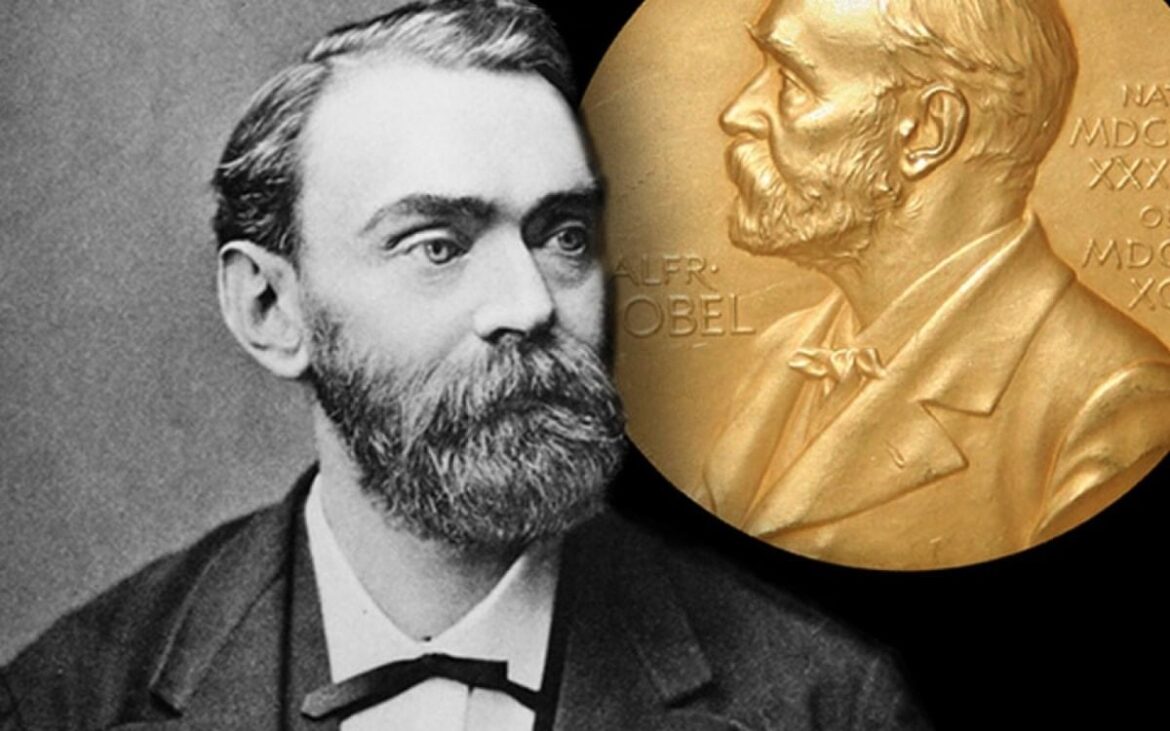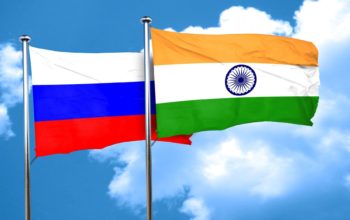
Grand Doctor of Philosophy, Professor,
Academician A.N. Iezuitov.
It is important to note the following indisputable fact: Alfred Nobel (1833-1896), who established the international prize bearing his name, had a meaningful theoretical and practical connection with Russia, its science and culture.
This is the so-called ‘Russian trace’ in the Nobel family. The founder of the Nobel family in the 17th century was Peter Olafson, who came from a peasant family. Thanks to his inexhaustible thirst for knowledge and perseverance, he became a lawyer (magistrate).
He was a man of noble character and noble behaviour. He took a new surname from the name of his hometown, ST-Nobel, which sounded similar to the Latin word ‘nobel’ — ‘noble.’
Peter Olafsson’s grandson, military doctor Emanuel Nobelius Sr., shortened his surname to Nobel. His son shortened his surname to Nobel. This is how it became known in history. All members of the Nobel family were distinguished by their noble character. It is significant that the first person with the surname Nobel was a military doctor. Military doctors save people from death in war.
Peter Nobel Olafsson married the daughter of the famous professor Olaf Rudbeck, who was involved in various fields, including pain management and pyrotechnics in military affairs. Thus, the Nobel family intuitively gravitated towards explosive weapons.
Alfred Nobel lived his life in his own way, saving humanity from military destruction. This is how the two members of the Nobel family connect with each other.
The Nobel family, to which Alfred Nobel belonged, was Swedish by nationality, but some of its members historically considered Russia their homeland and themselves its citizens.
Alfred Nobel’s father, Emanuel Nobel (1801-1872), was involved in various types of peaceful and military production in Sweden. However, he did not achieve any particular success in his homeland.
Emmanuel Nobel approached the Russian military department with a proposal in 1838 and, at their invitation, came to St. Petersburg (Russia), where he set up a special workshop for the production of underwater sea mines based on his own invention. Emmanuel Nobel’s business was successful, but after the Crimean War (1853-1856), it fell into decline, and in 1859, Emmanuel Nobel returned to Sweden and prospered in business.
In 1842, Emmanuil Nobel’s entire family (his wife and three sons), including Alfred, moved to St. Petersburg.
Emmanuil Nobel saw in his son Alfred, above all, his ability to work hard, which, one might say, made Alfred famous throughout the world as a Nobel.
As the son of a foreign subject, Alfred Nobel did not attend a local school in St. Petersburg, but received an excellent home education.
His teachers were the outstanding chemist Nikolai Nikolaevich Zinin and his colleague V.F. Petrushevsky.
Later, Alfred Nobel thanked Russian scientists for their help and support in various discoveries in the field of chemistry, especially the creation of dynamite. In total, Nobel received 355 patents for various discoveries. He was truly an encyclopaedic scientist. This allowed him to establish an international prize for discoveries in various fields.
Ludwig Nobel (1831-1888) was Alfred Nobel’s brother, who also lived in Russia for a long time, like his father, working with weapons and fulfilling various Russian military orders (bombs, shells, guns, cartridges). Ludwig Nobel always considered himself a Russian citizen, and his memory is immortalised in Russia. His scientific achievements are recognised, rather than his military ones.
Seven years after Ludwig Nobel’s death, Alfred Nobel established the International Nobel Prize, taking into account his brother’s scientific achievements.
Alfred Nobel and his older brother Robert (1829-1896) did not return to their father in Sweden, but spent some time doing various odd jobs that had no military purpose.
In 1861, Robert moved from St. Petersburg to Stockholm, where he worked for an oil company until his death.
In his will (1895), Alfred allocated funds to his children, his two nephews and two nieces. Robert, like his father in Russia, was also involved in the production of mines.
Alfred Nobel was a staunch and consistent pacifist, and his pacifist views were reinforced and strengthened when he saw that his closest relatives, his father and brothers, were involved in the manufacture of weapons intended for mass murder.
In 1854, together with his father, he installed underwater mines and carried out an explosion.
It can be said that Alfred Nobel had a genetic attraction to explosives. He invented smokeless gunpowder. At that time, Alfred Nobel wanted to make an explosive that was essentially safe for human life.
Alfred Nobel did indeed create a substance that he believed was not dangerous to human life, but useful to it.
Nobel considered dynamite, which he created in 1867 and which was originally called ‘Nobel’s safe explosive,’ to be such a substance. During its creation, Alfred Nobel was advised by N.N. Zinin, V.F. Petrushevsky, and A. Borodin, a well-known chemist and composer. They saw dynamite as simply a new substance and were themselves peace-loving people.
Alfred Nobel’s intentions were not fulfilled. Dynamite became the most powerful military explosive. Nobel himself intended to use dynamite exclusively for peaceful construction work.
Alfred Nobel also believed that such a weapon of mass destruction, once in the possession of many countries, would render their military confrontation meaningless and futile.
An insurmountable priority would emerge in the world, and peace would reign. Alfred Nobel’s assumption also turned out to be nothing more than an illusion. Nobel acted with great determination and persistence in establishing the ‘International Prize in his name.’
In his will, Alfred Nobel emphasised that the prize in his name for peace should be awarded to people of any nationality who work for a lasting peace without violence, material or spiritual.
It is well known that Alfred Nobel loved and highly valued the work of Turgenev, the great Russian writer.
In his will, Alfred Nobel noted that in the field of literature, the prize bearing his name should be awarded to a person who ‘produces the most outstanding work in an idealistic direction,’ i.e., affirming a high ideal. Perhaps this was a kind of criterion for a ‘literary idealistic direction.’ Alfred Nobel considered the work of Turgenev, who in his writings showed the vital necessity of interaction between different people, thereby promoting the establishment of a world without material and spiritual violence, to be of great importance.
Alfred Nobel lived his entire life in solitude and suffered greatly from it. Turgenev strengthened Alfred Nobel’s spirit in his work and believed that he could overcome his loneliness.
Thus, Alfred Nobel’s diverse and enduring interaction with Russia, its science and culture left an indelible mark on Nobel’s own life and on the history of Russia, including the present day.
27 May 2025
St. Petersburg



